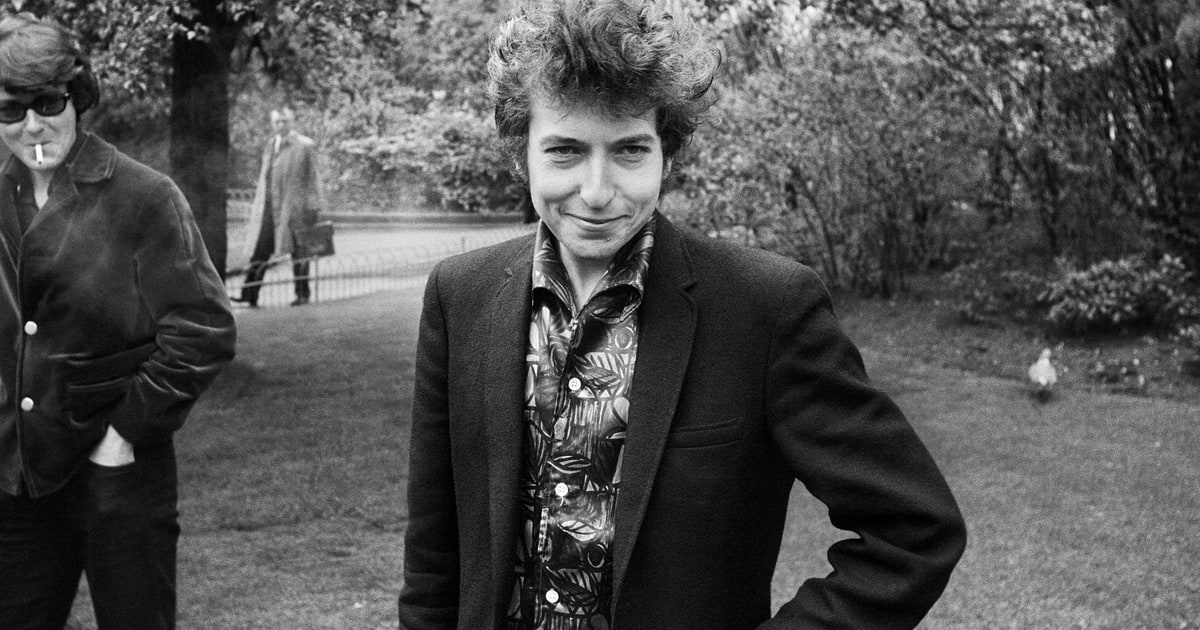 I’m a poet, and I know it/Hope I don’t blow it.
I’m a poet, and I know it/Hope I don’t blow it.
The news out of Stockholm last month was startling, no doubt: Rather than choosing a novelist for the 2016 Nobel Prize in Literature (I was pulling for Murakami), the Nobel Prize jury was awarding this year’s top literary honor to … Bob Dylan.
Reaction was mixed. Much snark shot around social media, and thoughtful people like Pamela Paul of the Times Book Review lamented the fact that no novelist had won. I have to agree it would have been great for the works of one lucky writer to enjoy a massive surge in sales, but I’m going to go with Salman Rushdie (“great choice”) and Joyce Carol Oates (“inspired & original choice”).
Inspired is the word. The surprise selection had people talking about the Nobel Prize again. One wag suggested that many millennials were furiously Googling “Bob Dylan” to figure out who he was. More were probably Googling “Nobel Prize” to figure out what it was. Dylan’s collected works long since cleared the hurdle of counting as literature, and Alfred Nobel’s original criteria was “in the field of literature the most outstanding work in an ideal direction.” The nastier strain of second-guessing could mostly be dismissed as click-bait posturing.
Really it comes down to a question: Can Dylan the writer inspire other writers? Clearly the answer is yes and the list of notable writers who have been inspired by Dylan is long. But what about others? Here are a few ways where young writers (even those who until recently had never heard of Dylan) can look to him for inspiration.
OWN YOUR INFLUENCES: Many young writers are blocked in their progress by misplaced fears about absorbing too much from writers they love. They fear they will be subsumed. It’s a fear worth conquering. We can soak up much in writers we admire and it can inform our work, but our own distinctiveness wins out in the end. Put one way, we’re usually bad at copying, so even if we were trying to mimic a given writer, what we put down usually ends up sounding more like us than them.
Dylan turned up in New York, a skinny teen from northern Minnesota obsessed by the folk music of Woody Guthrie, and paid homage by showing up at Greystone Hospital in New Jersey to visit his ailing idol. He also wrote and recorded “Song to Woody,” which pays his respects and more, showing the strong influence Guthrie had on him. There’s a gentleness to the song, a quiet, that’s startling to hear now. ” … hey, hey, Woody Guthrie, I wrote you a song/’bout a funny old world that’s acomin’ along.”
Part of talent is simply the ability to absorb and take in, and then move on. Dylan’s work changed decade by decade in part because he worked through early influences (rock and roll, blues, folk, country, God). The Internet age prompts a style of piling together snatches of influence, showing one has sampled something, but for an influence to offer real nourishment and inspiration requires passion and focus and singularity. Dylan owned his influences.
HAVE FUN: Every writer, every single writer, would gain from more often reading her or his words aloud, as we often see here at the Wellstone Center when even very accomplished writers are nudged to read more aloud and are struck by at the added glimpses of insight and perspective they gain into their own words. The “Dylan is not a writer!” crowd, tripping over their own self-seriousness, fails to account for the reality that language exists in a larger context than symbols on a page or screen. The sounds matter. Dylan’s work at its best offers a remarkable glimpse into the white-hot creative period of someone discovering the power of words. It’s all there on the recordings.
I think of one studio session where Dylan starts strumming his guitar, then sings “I was riding on the Mayflower when I thought I spied some land”- and bursts out laughing and stops, since he’s the only one who has started in on the song with the other musicians missing the mark. “Start again,” he croaks out, still laughing. “OK, take two” and when he starts again, the other musicians all join in. “Bob Dylan’s 115th Dream,” released in 1965 on “Bringing It All Back Home, ” might not count as one of Dylan’s more meaningful compositions, but he was clearly having a great time, putting himself on the cusp of word release in a way that would help power future work. The song was recorded in New York on January 13-14 when Dylan was all of 23 years old and he has a great time clowning around with lines like: “They asked me for some collateral/ And I pulled down my pants/ They threw me in the alley/ When up comes this girl from France/ Who invited me to her house/ I went, but she had a friend/ Who knocked me out/ And robbed my boots/ And I was on the street again.”
Young writers (and older writers, too) are forever citing the “Write shitty first drafts” advice from Anne Lamott, which is excellent and worth citing, but other good advice would be: Write FUN first drafts. Let yourself, at least now and then, have a gas letting the words fly. Sure, you’ll need to buckle in later for a slow and steady and sober-minded appraisal of what you have, and you might end up blasting most of it into vapor, but the fun part – as Dylan showed – is crucial to powering yourself forward and discovering what your direction really wants to be.
FIND A DEEPER HONESTY: Dylan the man was often annoying. I told the story in a previous blog of how the Beat writer Alan Marcus met the young Dylan at his home in California and was, let us say, less than impressed: “We sat back and waited for the conversation to flourish,” Marcus said. “It didn’t flourish. I think he was used to people being very obsequious with him, and I didn’t say, ‘Gee, can I touch you?’ or anything like that. He obviously felt that he wasn’t being celebrated enough, which he wasn’t.” He was starring in a movie of his own making and cared more about feeling entertained by that movie than connecting with people at every turn. He could be arrogant, quirky, pointlessly difficult. But through some combination of talent and luck he tapped into an energy beyond himself, and for all his puckishness he also developed wisdom and insight. The sound and specifics of an iconic song like “The Times They Are A-Changin'” might now feel simply too dated for many to find relatable, even as others of us can listen to it again and again, but try this one: “It’s Alright, Ma (I’m Only Bleeding)” with lines like “Disillusioned words like bullets bark/ As human gods aim for their marks / Made everything from toy guns that spark / To flesh-colored Christs that glow in the dark / It’s easy to see without looking too far / That not much / Is really sacred.”
– Steve Kettmann
Want to receive Steve’s blog on writers and writing by email? Sign up below.

